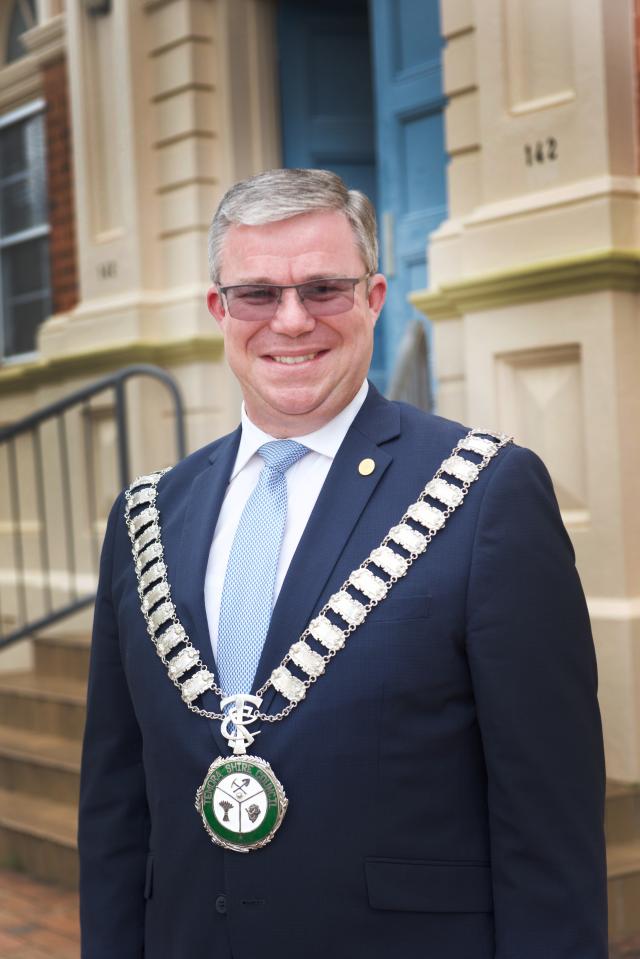The new era of industry policy
The Good Oil by Rod Brown *
The City of Playford held its successful annual Manufacturing Prosperity Conference in Adelaide on 19 August – with Prime Minister John Howard as guest speaker and 300 attendees. The PM welcomed a major Japanese investor to Australia, namely Hirotec, a company specialising in the manufacture of car bonnets and boot lids. Hirotec makes virtually all of these components for Mazda in Japan. How did it happen? It’s a long story, but hats off to Holden who had suggested to Hirotec two years ago that it should consider a manufacturing operation in Australia. The end result is a $100 million investment at Elizabeth West, with close to 200 jobs, and a significant economic and psychological boost for South Australia.
CONNECTIVITY issue
At the Adelaide conference we tabled a document analysing the issues associated with attracting foreign investment into the northern Adelaide region.
The document is to serve as background for an OECD expert group arriving next year. One of the key points in the analysis is the importance of ‘connectivity’. Let me explain. Industry policy in Australia has moved through a series of eras. The 1970s can be described as the Protectionist Era, followed by the Positive Adjustment Era of the 1980s, when industry and government grappled with adjusting the economy into higher growth areas. In the 1990s, we had the Competitiveness-Micro Reform Era driven by COAG and the privatisation and asset sales agendas. This has mostly run its course.
We are now in the Facilitative Era, where Federal and State Governments talk about their facilitative role in working with industry – the basic ethos is that the private sector is all-knowing, and the government role is mostly on removing constraints to private sector growth.
Well, this is fine to a point, but I believe the big challenge for Australian industry – and this includes agriculture, manufacturing and services – is the looming fragmentation of world markets and trading blocs.
The FTA with the USA and the inevitable the rise of China as a major economic power are related aspects. There is growing evidence that world trade and investment flows are blossoming where there is trust and confidence.
Equally, where there are major cultural and religious differences overlaid with terrorist concerns, trade and investment are going into reverse. This means that the trust and connectivity between governments, companies and societies are now critically important. It provides the framework for doing business, attracting investment, and bedding down joint ventures and technology transfer.
This is supported by a recent study, ‘Innovating Australia’ (Professor Ian Marsh et al, ANU 2004), that argues that in the longer term, Australia can either stay in the mainstream of advanced industrial economies, or watch as our neighbours, such as Taiwan, Korea and Singapore, build a presence in various platform sectors.
The study says that ‘in terms of technology, wealth, service sector sophistication, markets and entrepreneurs, Australia has the necessary capabilities. However, motive and commitment must be mobilised, particularly at the national level.’ The study stresses the importance of alliances with international partners to provide the connectivity to construct these platforms.
Local Government role in investment attraction
At the Adelaide conference, Garry Draffin, CEO of Invest Australia, emphasised the role of Local and State Government in the ‘after care’ of foreign investment in Australia. His basic argument is that there are a myriad of things that Local Government can do to make their locality more investor friendly, and that a Team Australia approach is critically important.
Aftercare and embedding of investments is the province of State and Local Government and the industry bodies because they are closer to the on ground action.
Strong collaboration at the local level is important. Examples of aftercare and embedding activity are:
- Assisting new companies to make connections to key personnel in the local business, TAFE, university and research communities.
- Facilitating the involvement of companies new to the region to consultative forums.
- Addressing infrastructure deficiencies that impact adversely on commercial operations.
- Making connections on behalf of companies into new markets, for example with Austrade posts.
- Introductions to State and Federal Ministers, parliamentary members, key business groups and officials.
- Highlighting companies in press articles and marketing features.
OECD report ‘Entrepreneurship Policy: A Tool for Urban Regeneration’
Readers with an interest in urban regeneration should read this report. It is one of the first to focus explicitly on the links between entrepreneurship and urban regeneration. It is based on the proceedings of a conference in Rome, organised by the OECD LEED Program and the European Commission.
The book sets out a ‘toolbox’ of instruments for entrepreneurship development for what in many ways appear to be the most hostile environments for entrepreneurship in cities, showing how entrepreneurship can prosper given the right stimulus. Available September 2004, visit the OECD online bookshop or contact Lucy.Clarke@oecd.org
Ongoing saga of grants
The Department of Family and Community Services has a Stronger Families program, and 50 grants under one stream have just been announced. Well and good, but there were 1,000 applications, many from Local Government. It means there were 950 losers, lots of paperwork and disappointment. Your odds in this field are thus five per cent. This is even lower than in the industry programs where the success rate is 12–13 per cent.
9 October Election
Verrry interesting – the election built around whom you can trust! Well, I am putting my trust in Michelle Grattan (Age) and Matt Price (Australian) to cut through the rubbish. For what it’s worth, the views of my circle of contacts, a fun mix of all political persuasions is roughly as follows:
- The forthcoming election will be a watershed. Too close to call. The Nationals could suffer heavy losses. Greens will do well because of Bob Brown’s ability to hit the issue, rather than the electorate embracing environment-driven policy.
- Howard is a class politician. Whatever your politics, you must admire his resilience. His lawyer’s mind enables him to pitch a consistent, lucid line. Likewise Costello and Abbott.
- Latham is still an unknown. His biff image is not a problem. His ‘reading to kids’ and ‘ladder of opportunity’ agenda are in danger of being overdone, and he needs to put other stakes in the ground. The shadow Cabinet is strong, and some will appeal to middle ground voters viz. Beazley, Rudd, McMullan.
- The Howard Government made a serious blunder by ridiculing the 43 signatories to the missive on the children overboard saga. The Defence community is very protective of its integrity. John Howard could surely have shot his junior Ministers for their ham fisted comments.
- Local Government is not on the radar. However, local initiatives, such as the Shepparton and Cobram folk making a home for displaced Afghans and Iraqis, serve as examples of how the incoming Federal Government can leverage support from Local Government.
* Rod Brown’s Canberra based consultancy group, Australian Project Developments Pty Ltd, specialises in industry/regional development and government liaison. For further information telephone (02) 6231 7261 or email apd@orac.net.au







